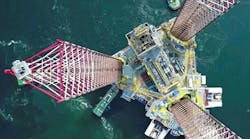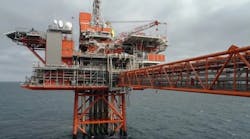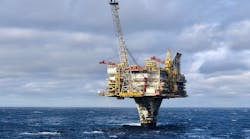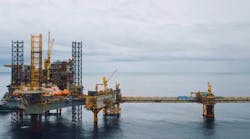Offshore staff
ABERDEEN, UK — Power generation accounted for 79% of UK offshore production emissions in 2022, according to the North Sea Transition Authority (NSTA). Electrifying new and existing platforms could deliver carbon savings of up to 22 MM tons by 2050, the NSTA claims.
Yesterday the NSTA convened a workshop in Aberdeen with some of the leading operators and technology companies on platform electrification developments.
Eleven operators made presentations in which they listed engineering challenges associated with converting power generation systems on existing platforms. Suppliers then detailed some of the technologies available that could support projects.
In the central UK North Sea, CNOOC International is working on plans to electrify the Buzzard platform, and bp, Shell and TotalEnergies are collectively addressing the potential for their installations in the Central Graben Area.
Further electrification options are under investigation for fields West of Shetland.
The NSTA's recently published draft OGA Plan stated that for existing offshore assets, operators would need to assess the technical and economic case for electrification and should commit to investments where it is reasonable to do so.
Having received responses, the NSTA will publish its recommendations in the next few months.
02.21.2024









